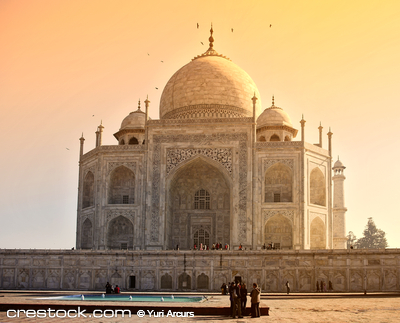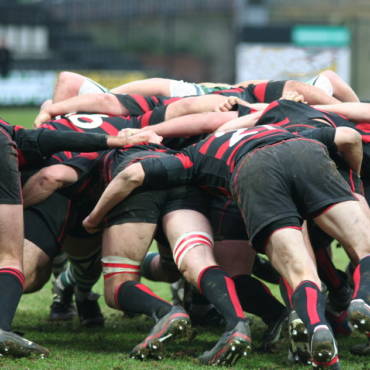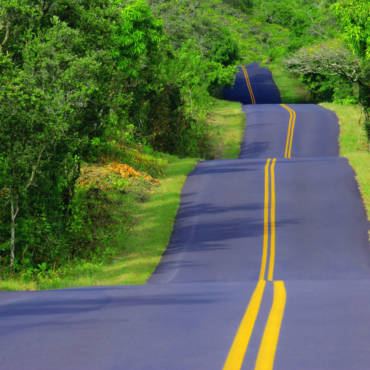With the 19th Commonwealth Games in Delhi less than a year away, people are starting to get excited about the opportunity for high level competition and the potential to win medals and glory for their nations, their teams, their sports and themselves.
There will be three types of athletes, coaches (and even nations) at the Commonwealth Games next year in Delhi:
- Those who have planned and prepared poorly and have no chance of winning;
- Those who have done some basic planning and preparation and with a little luck have some chance of winning;
- Those who have planned and prepared professionally, thoroughly and systematically and with an uncompromising attention to detail and who will win.
The question you have to ask yourself is…..which one am I?
For all those athletes, coaches, sports professionals, team managers and Nations heading to Delhi next year, take five minutes to work through this exclusive 19th Commonwealth Games Delhi 2010 “Are you ready to Win” checklist.
- Have you consistently prepared better than anyone in your role (e.g. event, sport, profession) in any Commonwealth nation over the past three years?
- Have you researched the competition environment including all aspects of travel, accommodation, meals, climate, pollution levels, security, medical support and every aspect of Indian culture?
- Have you brought together all team members (and potential team members) for a “what if” session – i.e. an integrated, dynamic scenario based session incorporating risk management strategies?
- Have you enlisted the help and support of athletes, coaches, sports administrators and other professionals who live in India – particularly expatriates – who know and understand the local environment?
- Have you check listed every element of your administration requirements including the requirements of your National Commonwealth Games Association, your International Federation, WADA, your national Anti Doping Authority and your own National and Indian Governments?
- Have you got an aggressive, intensive, thorough, bullet proof drugs in sport education program for your team athletes, coaches, management and staff?
- Have you got a comprehensive health monitoring and management strategy for your coaches, team management and staff including blood pressure, cholesterol, triglycerides, weight management, stress management and psychological well being?
- Have you revisited the team reports and team de-briefs from the past four Commonwealth and Olympic Games to learn what works and what doesn’t in a national team environment?
- Have you enlisted the help of athletes, coaches, staff and management who have been on Commonwealth and Olympic Games teams in the past – in your sport and in other sports and asked them mentor members of your current team?
- Have you got detailed strategic and “hour to hour” operational plans – starting with the end of Commonwealth Games in Delhi Closing Ceremony and working backwards for at least six weeks?
- Do you know everything about your competitors? Their strengths? Their weaknesses? Their world rankings over the past five years? Where they train? How they train? Their competition strategies? Their tactics in major competitions? Their technical advantages and disadvantages? What equipment they use?
- Do you know everything about the coach /coaches of your competitors? Their strengths? Their weaknesses? Their coaching philosophies? Their competitive record as an athlete and a coach? Have you studied every thing they have ever written, presented and discussed at coaching conferences, on blogs, in the press?
- Have you been to Delhi several times in the past few years – at the same time of year as the Commonwealth Games 2010 will be held – and meticulous, methodically and systematically measured every possible relevant aspect of the training and preparation environment?
- Have you competed in Delhi at the same venue that will be used at the Commonwealth Games Delhi 2010 and meticulously, methodically and systematically measured every aspect of the competition environment including obtaining a detailed performance analysis of the course / event venue? Did you ensure that all athletes were comprehensively tested in the same competition conditions they will experience next year with specific attention to detail in the areas of hydration, heat management, warm up, recovery and physiological load in Delhi specific competition conditions?
- Have you studied, researched and analysed all the trends in your sport and diligently tracked changes in rules and equipment so that there is no chance a competitor will have figured out an edge over you next year?
- Have you tested and trialled your Delhi travel, accommodation and logistics plans with athletes, coaches, management and staff under realistic competition (or training camp) conditions?
- Have you carefully and meticulously documented every aspect of your preparation, your Delhi re-con experiences and all trials and tests? Have you had these independently assessed and reviewed so that you have made certain that you have learnt the maximum possible from your pre Delhi preparation experiences?
- Have you maintained close regular communication with all team members and potential team members, their coaches, families, partners and support teams and kept them updated on all aspects of the Commonwealth Games including travel, ticketing, access to events, the post Games travel home and most importantly any security issues?
- Have you provided all team members and potential team members, coaches and support staff with the opportunity to study Indian language, culture, religion and other uniquely Indian experiences so they can be more relaxed and comfortable in the Delhi environment?
- Have you already scheduled the post Commonwealth Games de-brief and ensured that all athletes, coaches, staff and management can be involved?
The above list is the minimum standard that all Commonwealth Games teams preparing for Delhi 2010 should aspire to.
So how did you go?????
Commonwealth Games Checklist Key:
- If you answered “Yes” to 12 or fewer of these questions, my advice is don’t bother even getting on the plane to India. Or if you go to Delhi, just do it to enjoy the climate, the food and the people;
- If you answered “Yes” to 13-17 of these questions, you can head to Delhi hoping to win and wishing that you get a lot of luck, the right conditions and that your competitors have a bad day;
- If you answered “Yes” to more than 17 of these questions, go to Delhi with the confidence of knowing: knowing that you have consistently prepared better than any of your competitors at the Commonwealth Games and knowing that your professionalism and attention to detail gives you every possible opportunity to win. Nothing guarantees success – but you have given yourself and everyone associated with you a high likelihood of success.
So, with less than a year to go until the 2010 Commonwealth Games in Delhi – what are you going to do to make sure you have a successful Games and that your athletes, coaches, management and staff compete to their full potential?
Wayne Goldsmith




2 Comments
A great checklist for athlete and team preparation for the Commonwealth Games and indeed any competition.
It is also important for athletes/teams to practise worst case senarios. For example, the team bus transporting athletes to the venue breaks down and they must find alternative travel arrangements quickly (e.g. walk 3km to the destination). How would athletes/teams handle this change in preparation? Can athletes handle being late to a venue and still perform at their best with a limited warm-up? Another example would be if the best player in the team is injured early in first game of the competition. How would the players react? Do they know how to fill in the gaps? Athlete and team preparation extends well beyond what happens in training and compeition. Coaches and managers must think of every aspect in order to be successful in high pressure competitions, such a Commonwealth Games in Dehli.
Thanks for providing such a comprehensive insight into competition preparation.
Thanks for your insightful comments Keane.
Great ideas – the worst case scenario concept is a good one. I think too many athletes, coaches and teams go to major championships wishing and hoping that nothing will go wrong – rather than planning to win when things go wrong – as they inevitably will.
I also believe we spend too much time teaching athletes to try and control their environment and to try to get everything going right for them – when the better strategy is to teach them adaptability, crisis management and problem solving skills so they can overcome any situation, any problems, any challenges anytime – anywhere.
Thanks again,
WG
Comments are closed.